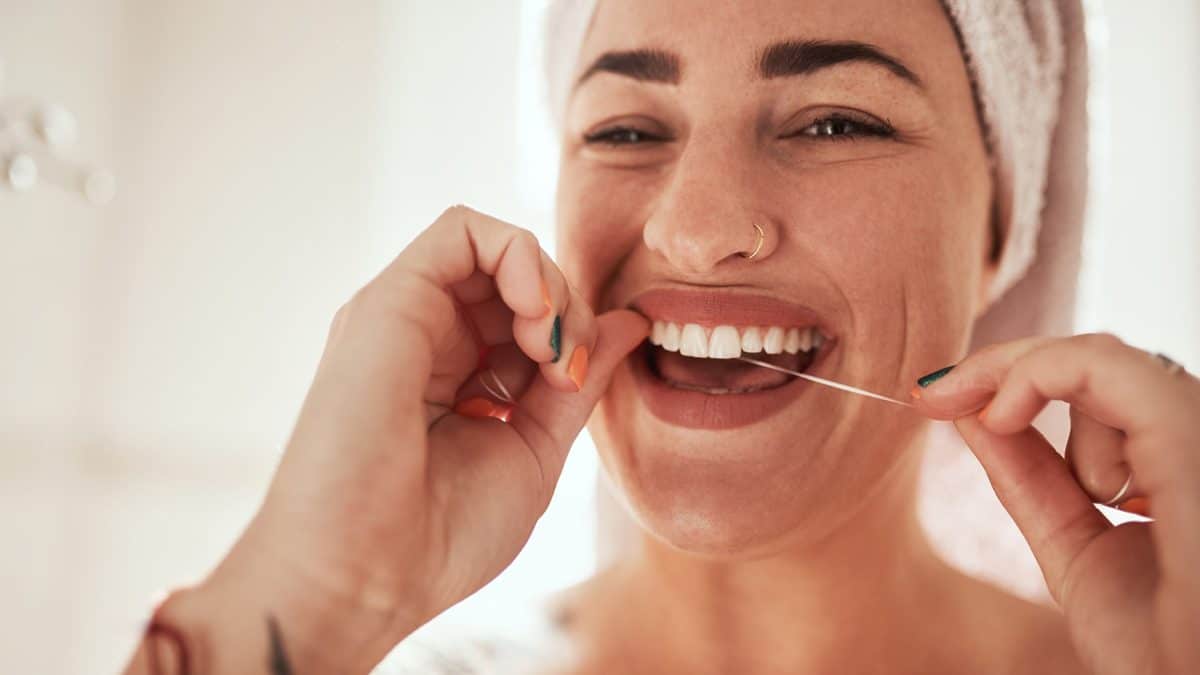
3 Reasons to Whiten Your Teeth At the Dentist
February 22, 2023
What Happens If You Leave a Tooth Infection Untreated?
April 11, 2025Dental implants are one of the most effective and durable solutions for replacing missing teeth. If you’ve invested in dental implants, you’ll want them to last a lifetime. The good news is that with proper care, dental implants can serve you for decades, providing you with both functional and aesthetic benefits. This guide will show you how to take care of your dental implants to ensure they stand the test of time, and why it’s important to stay committed to implant maintenance.
This Article Will Address:
- Why taking care of your dental implants is important
- How long dental implants last and how to extend their lifespan
- Recommended frequency for dental check-ups
- The importance of plaque removal
- Preventing gum disease around your implants
- Foods to avoid with dental implants
- How to keep food from getting trapped under implants
- The best toothpaste for dental implants
- General tips for maintaining your dental implants
- How to keep your dental implants in top condition for a lifetime
Why is Taking Care of Your Dental Implants Important?
Dental implants are designed to mimic the look and function of natural teeth, but they still require proper care to ensure they remain healthy. Poor oral hygiene and neglect can lead to complications such as gum disease, peri-implantitis (an infection of the tissues surrounding the implant), and even implant failure. Taking care of your implants helps to preserve their functionality and aesthetic appearance, allowing you to continue enjoying your natural smile.
How Long Do Dental Implants Last?
With proper care, dental implants can last more than 25 years, making them a long-term solution for tooth replacement. However, the longevity of your implants depends on several factors:
- Oral hygiene: Consistent brushing and flossing are key to maintaining your implants.
- Lifestyle habits: Avoiding smoking and maintaining a healthy diet can contribute to the longevity of your implants.
- Regular check-ups: Routine visits to your dentist help to detect any potential issues early and ensure your implants remain in optimal condition.
How Often Should I Visit the Dentist After Getting Dental Implants?
Routine dental check-ups are crucial after getting dental implants. We recommend visiting Washington Family Dental at least twice a year to monitor the health of your implants and surrounding tissues. During these visits, our team will:
- Perform professional cleaning to remove plaque and tartar
- Check for any signs of complications such as gum recession or infection
- Ensure that your implants are securely in place and function properly
Can Plaque Grow on Tooth Implants?
Yes, plaque can accumulate on dental implants just like it does on natural teeth. If plaque is not removed, it can lead to gum disease and other complications, including peri-implantitis. To prevent this, it’s essential to brush your implants thoroughly twice a day with a soft-bristled toothbrush and fluoride toothpaste. Regular flossing and the use of an interdental brush can also help clean areas between the implant and surrounding teeth.
Professional cleanings by our team at Washington Family Dental are also important to prevent plaque buildup in hard-to-reach areas.
How Can I Prevent Gum Disease Around My Dental Implants?
Gum disease is one of the most common complications associated with dental implants. To prevent gum disease, follow these essential steps:
- Brush regularly: Use a soft-bristled toothbrush to avoid damaging the implant or gums.
- Floss daily: Flossing helps remove food particles and plaque between your implants and natural teeth.
- Use antimicrobial mouthwash: An antimicrobial rinse can help reduce bacteria in your mouth, protecting both your gums and implants.
- Regular cleanings and check-ups: Frequent dental visits allow us to monitor the health of your gums and ensure that no infections are developing around your implants.
Are There Any Foods I Should Avoid with Dental Implants?
While dental implants are strong, certain foods can damage them or cause discomfort. To protect your implants, avoid:
- Sticky foods like caramel or biting into hard candies, which can pull on your implant and potentially cause damage.
- Hard foods like nuts or ice, which can crack or loosen your implants.
- Chewy foods like taffy or jerky, which can put excess strain on your implants.
Most foods are okay to eat, but avoiding the extremes will help to protect your natural teeth, implant teeth, and artificial teeth.
Does Food Get Trapped Under a Dental Implant?
Food particles can get trapped around your dental implants just as they might with natural teeth. To prevent this, use:
- Interdental brushes: These small brushes are designed to clean between your implants and natural teeth.
- Floss: Use floss designed for implants to effectively remove food particles.
- Water flossers: Devices like a Waterpik can help wash away food particles from around your implants.
What’s the Best Toothpaste for Dental Implants?
The best toothpaste for dental implants is one that is non-abrasive and contains fluoride. Avoid using toothpaste with whitening agents or gritty particles, as these can scratch and damage the surface of your implants and their top restorations. Some popular, implant-safe toothpastes include:
- Paroex: Antimicrobial and gentle on implants
- Sensodyne: Non-abrasive and safe for implants
- Crest Pro-Health: Safe for all dental restorations, including implants
Schedule a Dental Implant Follow-up Appointment in Washington, MI
Taking care of your dental implants is essential for ensuring they last a lifetime. By maintaining a consistent oral hygiene routine, avoiding certain foods, and visiting Washington Family Dental regularly, you can protect your implants and preserve your beautiful smile. Schedule a consultation with Dr. Lesinski at Washington Family Dental in Washington, MI, today!
Sources:
- American Academy of Implant Dentistry (AAID)
- Mayo Clinic: Dental Implant Care and Maintenance
- American Dental Association (ADA)

